Understanding the Levels of Risk in Residential Property Management
Chris Benedict • June 12, 2024
The Higher the Reward, the Higher the Risk

Understanding the Levels of Risk in Residential Property Management
- Introduction
- Real estate offers various ways to make money, focusing on accidental landlords and homebuyers turning properties into investments.
- Interview process involves assessing the client's level of risk and stress to match them with suitable properties.
- Levels of Risk in Residential Property Management
- Condo Associations (COAs)
- Least amount of control due to clustered units, strict rules, and shared ownership of the building.
- Limited control over expenses and decisions, leading to potential unexpected costs.
- Homeowners Associations (HOAs)
- Slightly more control than COAs, with simpler processes for property management.
- Less strict rules compared to COAs, but still some restrictions and potential complaints.
- Townhomes and Single Family Homes
- Control varies based on the community, with some having strict rules and others being more relaxed.
- Investors often overlook the importance of understanding the rules and regulations of the community they are buying into.
- Challenges with Lack of Control
- Example of New Build Investments
- Lack of understanding the property's regulations and restrictions can lead to unexpected limitations post-settlement.
- Investors may face difficulties with scheduling work and managing unexpected issues in tightly controlled communities.
- Optimal Investments for Control
- Detached Single Family Homes
- Offer the most control for investors who prefer autonomy in property management.
- While risks exist, the right location and property condition can mitigate potential issues.
- Navigating Property Management
- Balancing Control and Delegation
- Accidental landlords are encouraged to trust the property management team and focus on collecting returns rather than micromanaging.
- Turnkey property management streamlines the process and minimizes complications for property owners.
- Conclusion
- Emphasizing the importance of having a reliable property management team to handle emergencies and day-to-day operations.
- Encouraging clients to reach out for turnkey property management services to ensure a smooth and stress-free investment experience.














